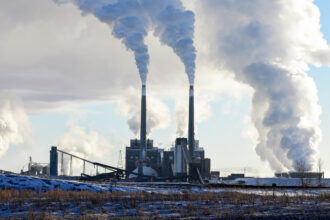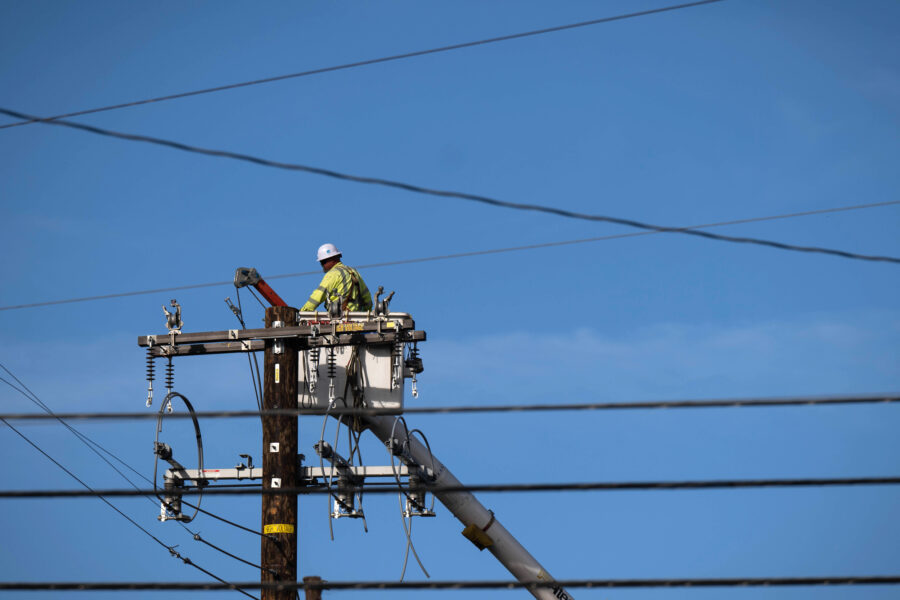A Colorado court has ruled that the city of Longmont’s ban on hydraulic fracturing, or fracking, is invalid.
The Boulder suburb—and the affiliated local and environmental groups that later joined the case—now have 44 days to appeal the decision. During that time, fracking will be prohibited across Longmont’s 22 square miles.
The city has not yet decided whether to appeal. However, the activist groups supporting the ban will appeal, according to their attorney from the Environmental Law Clinic at the University of Denver’s Sturm College of Law.
Kaye Fissinger, a Longmont resident who had worked on the town’s frack-ban campaign, previously told InsideClimate News: “We are going to take it all the way to the [state] Supreme Court.”
Longmont, a middle-class community of 86,000, is one of the first Colorado cities to push back against the controversial practice of oil and gas extraction that has becoming increasing popular in the state, and nationwide. Around 60 percent of the voters favored the ban in a November 2012 ballot measure. The town has already spent more than $61,000 in legal fees to protect the ban.
Fracking, a process that involves blasting a mix of chemicals, sand and water down a well to blast open cracks in shale rock and extract fossil fuels, has driven a surge in U.S. energy production. Although a boon for the economy, there’s a growing backlash against the industry, especially in Colorado. Fracking opponents, including those in Longmont, are concerned about the air, water, noise, and light pollution—and believe the current industry regulations aren’t protective enough.
Within weeks of the vote, the Colorado Oil and Gas Association, an industry trade group, filed a lawsuit against the ban. The state’s regulator, the Colorado Oil and Gas Conservation Commission, a division under Colorado’s Department of Natural Resources, joined the suit. So did TOP Operating, a local operator.
Boulder District Court Judge D.D. Mallard heard summary arguments in the Longmont case on July 9.
Ban opponents had argued that Longmont’s ban goes against a 1992 court decision called Voss v. Lundvall. That ruling said that only the state, not a city, could ban oil and gas drilling.
Mallard’s decision, released Thursday, agreed with the plaintiffs and overturned the ban. Mallard’s summary judgment said: Longmont “does not have the authority to prohibit what the state authorizes and permits.”
Tisha Schuller, president and CEO of Colorado Oil and Gas Association, said, “The ruling today is not just a win for the energy industry but for the people of Colorado. The more than two dozen communities that have invested in legal regulations, memoranda of understanding, and ongoing stakeholder dialogues to create responsible energy development also get a win.
“The decision demonstrates that the rule of law will prevail in how Colorado oversees one of the most important industries in this state,” she said.
Kevin Lynch, an attorney for Environment Law Clinic, was not pleased with the ruling. He said, “It is apparent from this decision that Judge Mallard felt her hands were tied by the earlier precedent of the Voss case. We disagree with that conclusion.”
The ruling did not address the issue of whether fracking poses a health risk—and how that risk plays into the debate over state interests vs. local concerns. Longmont’s defense had highlighted the fact that safety was not considered in the 1992 case.
Mallard noted this discrepancy in the case law and concluded it was out of her purview. She said, “Whether public policy should be changed in that manner is a question for the legislature or a different court.
“While the Court appreciates the Longmont citizens’ sincerely held beliefs about risks to their health and safety, the Court does not find this is sufficient to completely devalue the State’s interests, thereby making the matter one of purely local interest,” she wrote.
Lynch argued that as a trial court judge, it is Mallard’s job to weigh evidence and make factual findings. He said, “So any ruling she made should not have been based on the sincere beliefs of my clients but rather on the undisputed evidence that we put forward, which shows the impacts of fracking in Longmont outweigh the relatively small amount of oil and gas extracted using fracking.
“But all along we knew that this case would ultimately be decided by higher courts in Colorado, and so now we will make our case there,” said Lynch.
Mike King, executive director of the Colorado Department of Natural Resources, said of the decision—and the fight to come, “We continue to believe collaboration between state and local governments yields the best results and we continue to work closely and successfully with communities across Colorado to ensure our energy resources can be developed carefully and thoughtfully, in a way that protects people, communities and our environment.”
The Colorado towns of Lafayette, Broomfield and Fort Collins have also passed bans or temporary bans on fracking and face legal challenges. It is unclear how this recent Longmont decision will impact those cases.
The full decision:
About This Story
Perhaps you noticed: This story, like all the news we publish, is free to read. That’s because Inside Climate News is a 501c3 nonprofit organization. We do not charge a subscription fee, lock our news behind a paywall, or clutter our website with ads. We make our news on climate and the environment freely available to you and anyone who wants it.
That’s not all. We also share our news for free with scores of other media organizations around the country. Many of them can’t afford to do environmental journalism of their own. We’ve built bureaus from coast to coast to report local stories, collaborate with local newsrooms and co-publish articles so that this vital work is shared as widely as possible.
Two of us launched ICN in 2007. Six years later we earned a Pulitzer Prize for National Reporting, and now we run the oldest and largest dedicated climate newsroom in the nation. We tell the story in all its complexity. We hold polluters accountable. We expose environmental injustice. We debunk misinformation. We scrutinize solutions and inspire action.
Donations from readers like you fund every aspect of what we do. If you don’t already, will you support our ongoing work, our reporting on the biggest crisis facing our planet, and help us reach even more readers in more places?
Please take a moment to make a tax-deductible donation. Every one of them makes a difference.
Thank you,






